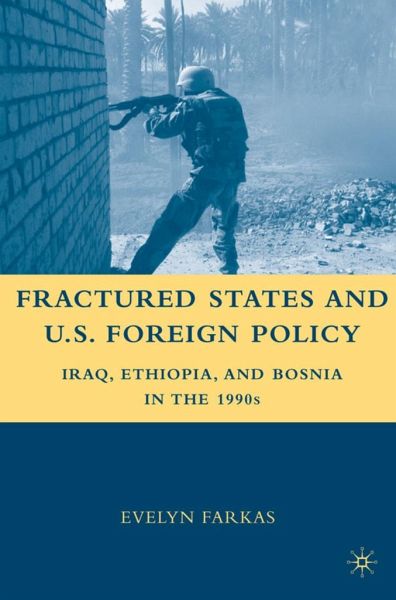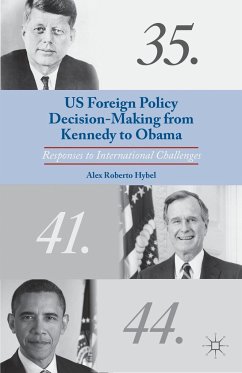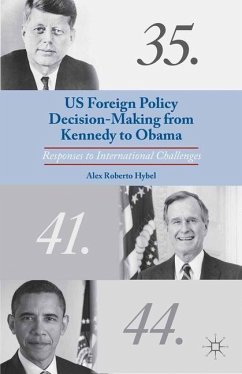
Fractured States and U.S. Foreign Policy
Iraq, Ethiopia, and Bosnia in the 1990s
Versandkostenfrei!
Versandfertig in 6-10 Tagen
38,99 €
inkl. MwSt.
Weitere Ausgaben:

PAYBACK Punkte
19 °P sammeln!
When does the U.S. support partition of a warring or failing state? Why has the U.S. supported partition for some secessionists, or irredentists, but not for others? Is it a policy of last resort or are there certain variables that are strong determinants of this position right from the start? This book seeks to answer these questions by examining U.S. policy toward secessionist movements in three countries during the first decade following the end of the Cold War: Iraq, Ethiopia and Bosnia-Herzegovina. This book uses detailed comparative examintion of U.S. policies in these three cases to ass...
When does the U.S. support partition of a warring or failing state? Why has the U.S. supported partition for some secessionists, or irredentists, but not for others? Is it a policy of last resort or are there certain variables that are strong determinants of this position right from the start? This book seeks to answer these questions by examining U.S. policy toward secessionist movements in three countries during the first decade following the end of the Cold War: Iraq, Ethiopia and Bosnia-Herzegovina. This book uses detailed comparative examintion of U.S. policies in these three cases to assess the relative impact of a number of factors in U.S. decisionmaking.












